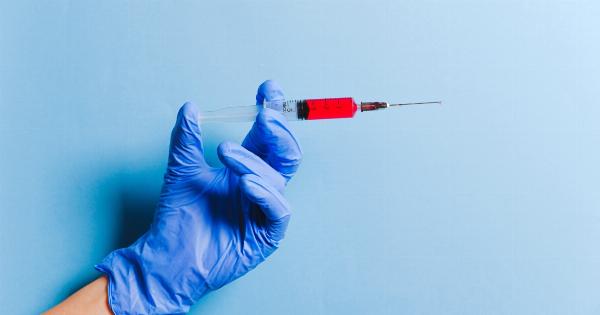Hematology is a branch of medical science that deals with blood-related disorders. It involves studying the various components of blood, their functions, and how they impact overall health.
Hematological tests are an important part of diagnosing and monitoring diseases. Here are ten hematological tests for early disease detection.
1. Complete Blood Count (CBC)
A complete blood count is a hematology test that measures several components in the blood, including red and white blood cells, hemoglobin levels, and platelets.
This test provides valuable information on the overall health of the body and can detect anemia, infection, and other blood disorders.
2. Hemoglobin A1C
Hemoglobin A1C is a test that measures glucose levels in the blood and provides an average of a person’s blood sugar levels over the past few months.
This test is commonly used to diagnose and monitor diabetes but can also detect conditions like prediabetes and insulin resistance.
3. Erythrocyte Sedimentation Rate (ESR)
The erythrocyte sedimentation rate test measures how quickly red blood cells settle to the bottom of a test tube.
This test can detect inflammatory conditions like rheumatoid arthritis and lupus and is also used to monitor the progression of these diseases.
4. Prothrombin Time (PT)
Prothrombin time measures how long it takes for blood to clot. This test is used to monitor and adjust the dosage of blood-thinning medications like warfarin and to detect bleeding disorders like hemophilia.
5. Activated Partial Thromboplastin Time (aPTT)
The activated partial thromboplastin time test measures the time it takes for blood to clot and is used to diagnose and monitor blood clotting disorders like deep vein thrombosis and pulmonary embolism.
6. Blood Chemistry Panel
A blood chemistry panel measures several components in the blood, including electrolytes, enzymes, and hormones. This test can detect conditions like liver and kidney disease, diabetes, and thyroid disorders.
7. Blood Typing and Crossmatching
Blood typing and crossmatching are tests used to determine a person’s blood type and and compatibility with donor blood. These tests are essential for blood transfusions and organ transplants.
8. Ferritin
Ferritin is a protein that stores iron in the body and is used to monitor iron deficiency anemia. This test can also detect conditions like hemochromatosis, a hereditary disorder that causes excess iron buildup in the body.
9. Hematocrit
Hematocrit is a measure of the volume of red blood cells in the blood. This test can detect anemia and dehydration and is used to monitor the effectiveness of certain medications.
10. Reticulocyte Count
The reticulocyte count measures the number of immature red blood cells in the blood. This test can detect conditions like anemia and bone marrow disorders.



























